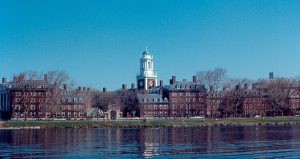
The first colleges in the American colonies were Harvard, Yale and the College of William and Mary, where the curricula were developed based on classical liberal arts. The courses offered were “seen as the best preparation for lawyers, ministers, and statesmen: grammar, rhetoric, logic, astronomy, arithmetic, geometry, and music,” according to the Chronicle of Higher Education.
Early Americans continued their education for different reasons than today’s citizens. People continued their education so that they could learn about things they liked and to expand their minds. College was seen less as a necessity or access to a job and more of a luxury. People went to broaden their horizons – not because they felt like they had to in order to be competitive in the job market.
By the mid-1800s, Francis Wayland, president of Brown University, tried to switch the focus of higher education. He was “worried that higher education institutions were going to become obsolete if they focused solely on exercising students’ brains.” He was particularly concerned with the “need for civil engineers to build railroads.” This sparked a debate about the function of college that still continues: “Should it provide a broad education or training for a job?”
Today, there are thousands of universities, 2-year colleges, and technical colleges in the United States. The curricula in these institutions vary vastly from the time of the birth of higher education in the American colonies. According to the aforementioned Chronicle article, as colleges added courses, they “rarely culled any of the courses that already existed. Religion expanded to include philosophy. Then the social sciences, such as economics and sociology, were added.”
Students today have a huge array of courses and majors from which to choose. However, in recent years, there is a pattern emerging regarding the path students are choosing to take. Many are opting for more practical degrees as opposed to the liberal arts their ancestors adopted. In an annual survey from the University of California at Los Angeles, the majority of Freshmen respondents stated that getting a good job is the most important reason to attend college.
Georgetown University’s recent study, “The Economic Value of College Majors,” lists business management and administration as the number one major and nursing as number four, while English language and literature is at number 10. Liberal arts and sociology are 19 and 20, respectively. The debate over what the purpose of college should be most likely will not subside any time soon.